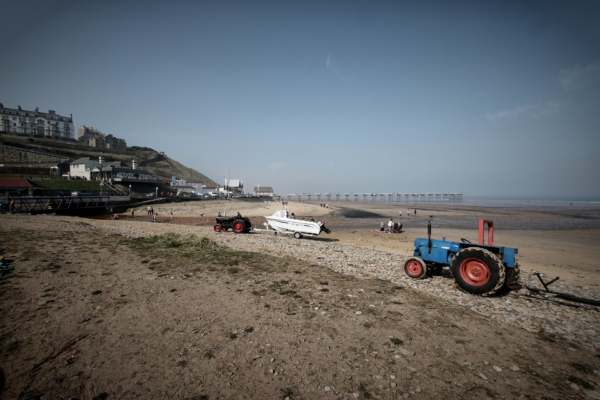An independent panel of external experts is to be set up to assess the evidence surrounding the deaths of large numbers of crustaceans, such as crabs and lobsters, on the North East coast between September and December 2021.
In a letter to the Environment Food and Rural Affairs (EFRA) Committee, Fisheries Minister Mark Spencer confirmed Defra’s Chief Scientific Advisor Gideon Henderson, who has not previously been involved in considering this issue, would liaise with the Government Chief Scientific Adviser Sir Patrick Vallance to establish the independent group.
A brief history of the North East crustacean deaths
In October 2021, thousands of dead crabs and lobsters were found washed up on the Tees estuary and neighbouring north-east beaches. Countless crustaceans were found, with Marske and Saltburn said to be experiencing particularly high numbers, and the first sightings reported in early October in Seaton Carew, Redcar and farther north in Seaham.
The announcement of the formation of an independent panel follows a series of reports, protests and analysis. Back in February 2022, Defra and partner agencies completed an investigation and following testing and modelling to rule out possible causes, they concluded that the deaths potentially resulted from a naturally occurring algal bloom.
In July 2022 it was reported that Redcar and Cleveland council along with Middlesbrough and Hartlepool wanted the government to take action. Redcar and Cleveland Council members unanimously backed a motion which demanded an investigation be reopened. A series of protests at beaches in the North East followed and fishermen were reported to have begun a legal campaign after smaller catches were said to be threatening their livelihoods.
Then, in late September, a report commissioned by the North East Fishing Collective following a crowdfunding appeal and carried out by academics at Newcastle, Durham, York and Hull universities, concluded that a toxic chemical is more likely to have caused thousands of crab deaths than natural algae.
A Parliamentary evidence gathering session was convened by the EFRA Committee just a few weeks ago. The Chair subsequently wrote to the Minister to express the Committee’s interim conclusions and to call for the Government Chief Scientific Adviser to urgently appoint an expert independent scientific panel.
Group of experts
The group will be made up of experts from outside government and will work with Professor Gideon Henderson and Sir Patrick Vallance to assess the evidence and consider all explanations for the sea life mortality, including the possible roles of algal blooms, dredging and pyridine. They will consider the findings of the Defra-led investigation published in May 2022 and research from university researchers, using all available data and informed by the wider scientific literature and by expert opinion.
Ministerial announcement
Fisheries Minister Mark Spencer said: “I recognise fishing communities in the North East want as thorough an assessment as possible into the crab and lobster deaths last year.
Defra’s investigation concluded that the most likely cause was an algal bloom, but we have always recognised this is a complex area of science and have remained open to further research. That’s why it is right that all the evidence is now assessed by independent experts and I look forward to receiving their advice.”
Defra Chief Scientific Adviser, Professor Gideon Henderson, said: “The increased sea-life mortality has important consequences for local communities and it is important we understand its cause. I have discussed the issue with the Government Chief Scientific Adviser and look forward to working with him to convene a panel of relevant experts from outside government to re-examine all available data and consider this matter carefully.
The panel will be asked to conduct and complete their work in a timely fashion and to provide advice on what further evidence or actions may be advised. Their findings will be published and further details on the panel of experts and their terms of reference will also be made available in due course.”
Resources:
Defra and agencies have published further reports relating to the investigation which can be found here.
The full news release from Defra can be read here and the letter from the Fisheries Minister to the EFRA Committee can be found here.

